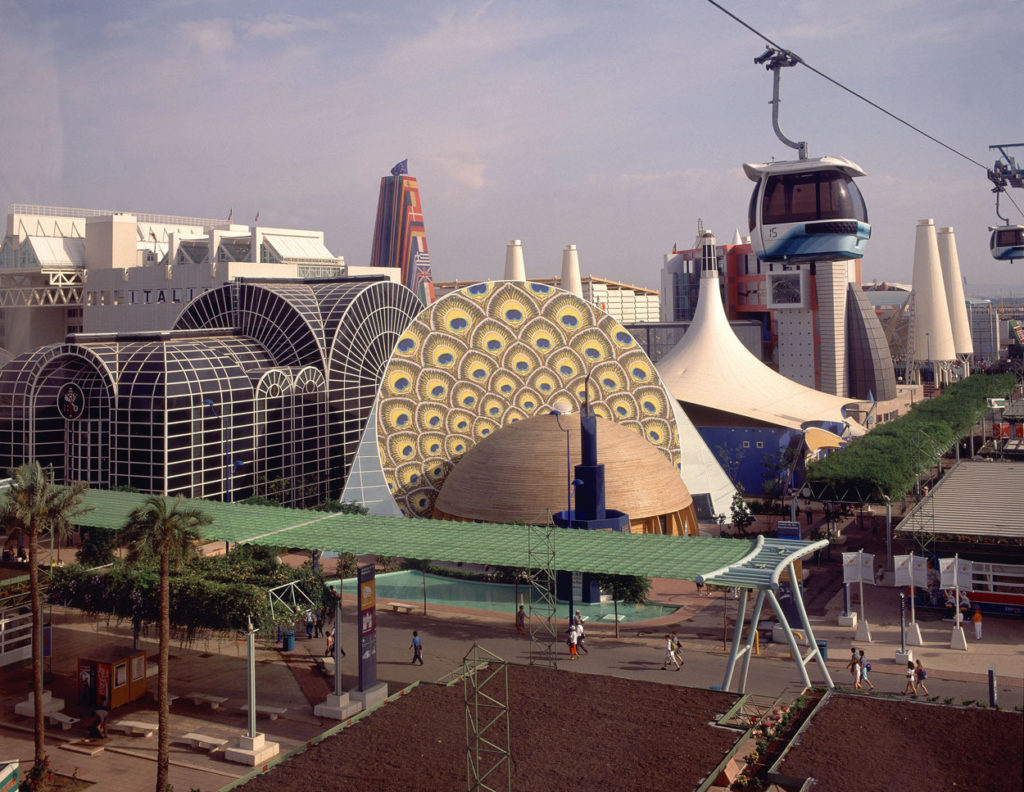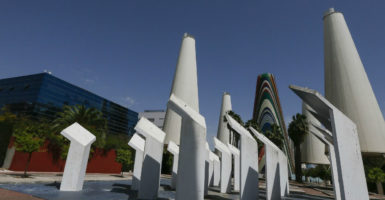The Heritage Foundation has been on the road in Spain’s southern region of Andalucía promoting economic freedom.
One stop was Seville, a city that is sorely in need of hearing that message.
Seville has been an important urban center since the Middle Ages. It was from the nearby Atlantic port of Cádiz that Christopher Columbus departed for the New World in 1492.
Unfortunately, it faces economic challenges today. Long a stronghold of Spain’s PSOE socialist party, the economy of Andalucía has suffered as a result.
Andalucía is also the most corrupt region in Spain, according to a European Commission report. It’s the kind of place where crony taxi driver unions fight against disruptive new services such as Uber and Cabify.
Some Cabify vehicles have even been set on fire in recent months.
According to Eurostat, unemployment rates in the region are among the highest in Europe. The economy has yet to recover from the 2008 collapse of the real estate bubble that ended a building boom of vacation homes for northern Europeans in the early years of the eurozone.
Seville was also the power base of Felipe González, a socialist who was Spain’s longest-serving prime minister from 1982 to 1996. Shortly after taking office, González persuaded taxpayers to construct a lavish world’s fair in his hometown—dubbed “Expo ’92.”
Playing off the 500th anniversary of Columbus’ fateful voyages, González wanted to use the world’s fair to showcase (and take credit for) Spain’s recovery from the 36-year dictatorship of President Generalissimo Francisco Franco and its return to democracy as a member of the then-expanding European Union.
Expo ’92 was a good excuse to lobby for approval of the sorts of massive public works projects that socialists everywhere love—in this case, improving infrastructure to lure tourists south after visiting the 1992 Barcelona Olympics (which was also constructed at taxpayer expense).
According to a New York Times report, Expo ’92 enabled González to deliver more than $25 billion (2017 dollars) worth of pork to his Andalusian constituents.
Along the way, according to an official Spanish government audit by the Tribunal de Cuentas, there were huge cost overruns and nearly 90 percent of Expo ’92-related construction contract awards were murky, noncompetitive, sole-source procurements.
Skeptics, though, claimed that González had other reasons for promoting Expo ’92. He wanted to distract attention from economic stagnation and a series of corruption scandals that tainted the government throughout his tenure.
According to Diego Sánchez de la Cruz of the Madrid-based Intelligent Regulation Forum, from 1982 to 1996 there was zero net job creation in Spain.
In any case, fast-forward 25 years and, unfortunately, it is clear that Expo ’92 turned out to be an example of how centrally planned and state-funded projects can end up wasting a lot of money.

Expo ’92 attracted millions of tourists in the early 1990s, but has since fallen into disrepair and posed a financial liability to the Spanish government. (Photo: Album/Oronoz/Newscom)
As recent articles by CNN, Forbes, and others vividly illustrate, much of Expo ’92 now lies in ruins. Apparently, Seville’s socialist government can’t even afford to tear it down. The taxpayers are still paying on the debt incurred to build it, though.
It’s not the first time the Spanish government has wasted money in Seville. The Ibero-American exhibition of 1929, on the eve of the worldwide Great Depression, was a (failed) attempt by the last king of Spain, Alfonso XIII, to cling to power.
The taxpayers lost money on that one, too.
The socialists in Andalucía have now been in power longer than Franco. Seville needs economic freedom more than it needs the depressing reminder of a world’s fair white elephant, a symbol of that power.
Perhaps Andalusians will decide it is time to turn to politicians who will shrink the public sector and roll back onerous taxes and over-regulation. That would be a good step toward putting Expo ’92 in the rear view mirror.
































